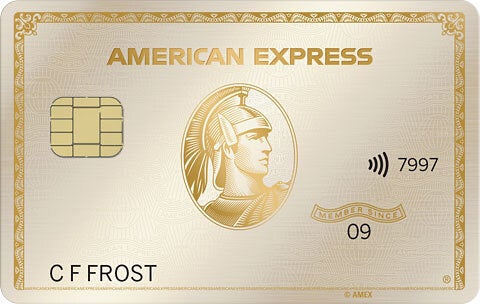'ZDNET Recommends': What exactly does it mean?
ZDNET's recommendations are based on many hours of testing, research, and comparison shopping. We gather data from the best available sources, including vendor and retailer listings as well as other relevant and independent reviews sites. And we pore over customer reviews to find out what matters to real people who already own and use the products and services we’re assessing.
When you click through from our site to a retailer and buy a product or service, we may earn affiliate commissions. This helps support our work, but does not affect what we cover or how, and it does not affect the price you pay. Neither ZDNET nor the author are compensated for these independent reviews. Indeed, we follow strict guidelines that ensure our editorial content is never influenced by advertisers.
ZDNET's editorial team writes on behalf of you, our reader. Our goal is to deliver the most accurate information and the most knowledgeable advice possible in order to help you make smarter buying decisions on tech gear and a wide array of products and services. Our editors thoroughly review and fact-check every article to ensure that our content meets the highest standards. If we have made an error or published misleading information, we will correct or clarify the article. If you see inaccuracies in our content, please report the mistake via this form.
Does your health insurance cover international emergencies? Half of Americans don't know - Survey






Americans are dusting off passports and planning foreign travel at a rate surpassing pre-pandemic levels. A recent survey conducted by the International Medical Group confirmed that this trend is up 11% among those who've already traveled outside the US.
As Americans pack their suitcases for overseas travel, many are often unprepared when it comes to having proper health coverage should a medical emergency occur. According to a survey published in May by travel insurer InsureMyTrip, nearly half of the survey respondents (1,329 Americans ages 18 and older) said they didn't know if their health care policy would cover a medical emergencies incurred in a foreign country.
Being unprepared can be costly.
Sonja Bell, a resident of Dallas, Texas, was visiting Bratislava in the central European country of Slovakia in 2012 when she started feeling ill. On her way to the hotel, she stopped at a small clinic. "When we arrived, I was told I was so dehydrated that they would be keeping me overnight," Bell told ZDNet. She was ultimately diagnosed with pneumonia and bronchitis. The experience produced another surprise as the doctor returned with her health insurance cards. "She said that I would have to pay, upfront, about $2,000 until my insurance made a payment," Bell added. "If I was due a refund, they would send it to me."
Medical emergencies may not be at the top of your mind when dreaming of overseas adventures, but accidents happen. "While people are more aware of the need for travel insurance, there's still a lot of confusion around what would and wouldn't be covered by their own health insurance," said Suzanne Morrow, Senior Vice President of InsureMyTrip.
"When you file the expense, it may be shocking to find out how little your health insurance will [pay] towards it," Morrow added.
Chandrea Brown, a data analytics professional in the health care industry, is embarking on an extended excursion that will begin in Rome later this year. Over the next few months, she intends to explore additional Italian cities and then make her way to Lisbon, Portugal. Asked whether she knew if her current health care policy would cover medical issues abroad, she told ZDNet, "I don't know yet, but that's one of the points I want to check."
Don't fly blind when it comes to health insurance coverage overseas. Before embarking on an international voyage, take the time to evaluate your health care options. Reach out to your health insurance provider, and research how your credit cards can help cover your expenses in an emergency.
What questions should international travelers ask their health insurance providers about before traveling?
Travelers should contact their health care providers to ask:
- Does emergency medical coverage extend to their specific destination?
- What deductibles, co-insurance, or co-payments would be required in a medical emergency during the trip?
- How are urgent vs. emergency care issues covered?
(Older adults with Medicare should be aware that foreign medical expenses aren't covered and that supplemental plans must be purchased separately.)
What's the difference between travel insurance and travel reward programs?
"Credit card travel rewards typically offer trip interruption benefits that kick in before travel occurs. Travelers should first understand what benefits are available through their credit card providers. Then, purchase a travel policy that covers everything else," Morrow told ZDNet.
Using sites such as InsureMyTrip can help would-be vacationers compare travel insurance rates and coverage to determine the best fit for their budget.
ZDNet has compared five of the best international travel rewards credit cards, which offer anything from generous bonus point offers to $0 foreign transaction fees on purchases. The following credit cards (drawn in part from the list mentioned above) additionally offer travel-related programs that can assist with unexpected events that arise before and during international trips.
- 5x on travel purchased through Chase Travel℠.
- 3x on dining, select streaming services and online groceries.
- 2x on all other travel purchases.
- 1x on all other purchases.
- 5x on travel purchased through Chase Travel℠.
- 3x on dining, select streaming services and online groceries.
- 2x on all other travel purchases.
- 1x on all other purchases.
The Chase Sapphire Preferred Card offers standard travel protection benefits for any travel expenses paid for with the credit card.
Travel benefits include:
- Trip cancelation and trip interruption insurance
- Travel and emergency assistance
- Accidental death and dismemberment coverage up to $10,000

Chase Sapphire Preferred® Card
- Earn 4X Membership Rewards® points per dollar spent on purchases at restaurants worldwide, on up to $50,000 in purchases per calendar year, then 1X points for the rest of the year.
- Earn 4X Membership Rewards® points per dollar spent at US supermarkets, on up to $25,000 in purchases per calendar year, then 1X points for the rest of the year.
- Earn 3X Membership Rewards® points per dollar spent on flights booked directly with airlines or on AmexTravel.com.
- Earn 2X Membership Rewards® points per dollar spent on prepaid hotels and other eligible purchases booked on AmexTravel.com.
- Earn 1X Membership Rewards® point per dollar spent on all other eligible purchases.
- Earn 4X Membership Rewards® points per dollar spent on purchases at restaurants worldwide, on up to $50,000 in purchases per calendar year, then 1X points for the rest of the year.
- Earn 4X Membership Rewards® points per dollar spent at US supermarkets, on up to $25,000 in purchases per calendar year, then 1X points for the rest of the year.
- Earn 3X Membership Rewards® points per dollar spent on flights booked directly with airlines or on AmexTravel.com.
- Earn 2X Membership Rewards® points per dollar spent on prepaid hotels and other eligible purchases booked on AmexTravel.com.
- Earn 1X Membership Rewards® point per dollar spent on all other eligible purchases.
This card grants access to the American Express® Global Assist Hotline, which offers emergency medical coordination and referrals 24/7. This service can help international travelers navigate emergency services when dealing with the unexpected, but card members are responsible for costs incurred by third-party service providers.
Travel benefits include:
- Access to the Global Assist Hotline
- Emergency Medical Transportation Assistance
- Medical Prescription Replacement Assistance

American Express® Gold Card
- Earn unlimited 2 points for every $1 spent on travel and dining purchases.
- Earn unlimited 1.5 points for every $1 spent on all other purchases.
- Earn unlimited 2 points for every $1 spent on travel and dining purchases.
- Earn unlimited 1.5 points for every $1 spent on all other purchases.
The Bank of America Premium Rewards Card requires a $95 annual fee, but it's worth it for the travel protections it provides for card members.
Travel benefits include:
- Emergency evacuation and transportation coverage for you or any family members injured or sick while traveling
- Travel and emergency assistance services to help coordinate medical, legal, or transportation services
- Trip delay or cancelation protection up to $2,500 for travel that is canceled or cut short due to illness or other covered reasons
Read more: The Best Bank of America Credit Cards

Bank of America® Premium Rewards® credit card
- Earn unlimited 5% cash back on hotels and rental cars booked through Capital One Travel, where you'll get Capital One's best prices on thousands of trip options. Terms apply
- Earn unlimited 1.5% cash back on every purchase, everywhere
- Earn unlimited 5% cash back on hotels and rental cars booked through Capital One Travel, where you'll get Capital One's best prices on thousands of trip options. Terms apply
- Earn unlimited 1.5% cash back on every purchase, everywhere
This Capital One credit card provides a separate accident travel insurance policy. The policy is managed through the card network, and it can be accessed through the card member's online account.
Travel benefits include:
- Travel accident insurance covers the cardholder, spouse, and immediate family members, including children, in the case of death or permanent injury
- Trip cancelation or interruption insurance reimburses trip expenses for qualifying reasons that include accidental injuries or non-preexisting illnesses

Capital One Quicksilver Cash Rewards Card
- Earn 5X Membership Rewards® Points for flights booked directly with airlines or with American Express Travel up to $500,000 on these purchases per calendar year.
- Earn 5X Membership Rewards® Points on prepaid hotels booked with American Express Travel.
- Earn 5X Membership Rewards® Points for flights booked directly with airlines or with American Express Travel up to $500,000 on these purchases per calendar year.
- Earn 5X Membership Rewards® Points on prepaid hotels booked with American Express Travel.
At $695, the American Express Platinum Card has a higher annual fee than every other card on this list. Avid international travelers may still find it valuable, however, given the premium travel insurance perks it provides.
Travel benefits include:
- Expenses due to trip cancelation, delay, and interruption can be covered (if they are approved) by up to $10,000 in a 12-month period per the insurance agreement
- Premium Global Assist can coordinate help during medical emergencies, and emergency medical transport can be provided at no additional cost (provided the service is approved and provided by the hotline)
- American Express Travel Insurance has policies that will cover emergency medical and dental expenses worldwide (except in places economically sanctioned by US law)

The Platinum Card from American Express
How much can medical evacuations cost?
These services can cost up to $10,000 or more depending on the travel destination. "Essentially, you are getting a private jet with medical attention. It can get expensive pretty quickly," Morrow warned.
Medical evacuations are rarely covered by domestic health insurance policies. Travel insurance policies, however, typically cover medical transport to the nearest medically-equivalent hospital that can offer lifesaving services.
Are pandemic exclusion clauses still included in travel insurance?
Travel insurance companies have largely removed pandemic exclusion clauses from their policies. "Companies that had pandemic exclusions are taking that wording out," Morrow said. "Insurance companies are now treating Covid like any other unforeseen illness."
If you haven't contracted the virus before booking the trip, it will now be considered a covered illness. "I don't know any company that still has kept in the pandemic exclusion," she added.
How much does travel insurance cost?
Travel insurance prices can vary based on the age of the travelers and the overall cost of the trip. "It tends to be anywhere from 5% to 10% of the trip cost if you're getting the package plan," Morrow said.
An insurance package plan will likely include trip cancelation or trip delay insurance. Post-departure benefits -- health insurance coverage in foreign countries, medical evacuation coverage, etc. -- will cost even less than non-package plans, and they can be an effective way to save money.